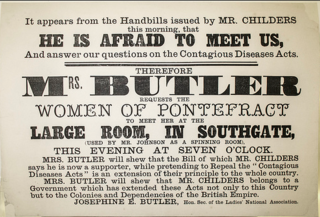Related Research Articles

Deptford was a parliamentary constituency centred on the Deptford district of South London. It returned one Member of Parliament (MP) to the House of Commons of the Parliament of the United Kingdom.
The 1874 Liverpool by-election was fought on 14 March 1874. The by-election was fought due to the incumbent Conservative MP, Viscount Sandon, becoming Vice-President of the Committee of the Council on Education. It was retained by the incumbent.
The 1872 Flint Boroughs by-election was fought on 16 October 1872. The by-election was fought due to the incumbent Liberal MP, Sir John Hanmer, being elevated to the peerage. It was, as expected, won by the Liberal candidate Sir Robert Cunliffe, who was unopposed.

The 1872 Pontefract by-election was fought on 15 August 1872. The ministerial by-election was fought due to the incumbent Liberal MP, Hugh Childers, becoming Chancellor of the Duchy of Lancaster and Paymaster General. It was retained by Childers.
The 1872 Southern West Riding of Yorkshire by-election was held on 8 July 1872. The by-election was fought due to the resignation of the incumbent Liberal MP, Viscount Milton. It was won by the Conservative candidate Walter Spencer-Stanhope, who was unopposed. The Conservatives retained this gain at the 1874 general election.
The 1872 Aberdeen by-election was fought on 29 June 1872. The by-election occurred as a result of the death of the incumbent Liberal MP, William Henry Sykes. It was won by the "Moderate Liberal" candidate John Farley Leith against the official Liberal candidate James William Barclay, whose reputation as a Radical led to a split in the local party
The 1872 West Cumberland by-election was fought on 26 March 1872. The by-election was fought due to the Succession to a peerage of the incumbent MP of the Conservative Party, Henry Lowther. It was won by the Conservative candidate The Lord Muncaster, who was unopposed.
The 1872 East Gloucestershire by-election was fought on 11 March 1872. The by-election was fought due to the Resignation of the incumbent MP of the Conservative Party, Robert Stayner Holford. It was won by the Conservative candidate John Reginald Yorke, who was unopposed.
The 1879 Haddington Burghs by-election was fought on 25 February 1879. The by-election was fought due to the succession to a peerage of the incumbent Liberal MP, William Hay, 10th Marquess of Tweeddale. It was won by the Liberal candidate Sir David Wedderburn.
The 1878 Argyllshire by-election was fought on 27 August 1878. The by-election was fought due to the resignation of the incumbent Liberal Member of Parliament, the Marquess of Lorne to become Governor General of Canada. It was retained by Lorne's brother the Liberal candidate Lord Colin Campbell.
The 1877 Westminster by-election was fought on 11 August 1877. The by-election was fought due to the incumbent Conservative MP, William Henry Smith, becoming first Lord of the Admiralty. It was retained by the incumbent.
The 1876 Rutlandshire by-election was fought on 17 August 1876. The by-election was fought due to the incumbent Conservative MP, Gerard Noel, becoming First Commissioner of Works. It was retained by the incumbent.
The 1874 Haverfordwest by-election was fought on 12 June 1874. The by-election was fought due to the voiding of the election of the incumbent Liberal MP, The Lord Kensington. It was retained by the incumbent who ran unopposed.
The 1874 North Lancashire by-election was fought on 26 March 1874. The by-election in the North Lancashire constituency was fought due to the elevation to the peerage of the incumbent Conservative MP, John Wilson-Patten. It was won by the Conservative candidate Thomas Henry Clifton who was unopposed.
The 1874 North Northumberland by-election was fought on 17 March 1874. The by-election was fought due to the incumbent Conservative MP, Earl Percy, becoming Treasurer of the Household. It was retained by the incumbent.
The 1874 Monmouthshire by-election was fought on 17 March 1874. The by-election was fought due to the incumbent Conservative MP, Lord Henry Somerset, becoming Comptroller of the Household. It was retained, as expected, by the incumbent.
The 1874 Portsmouth by-election was fought on 16 March 1874. The by-election was fought due to the incumbent Conservative MP, James Dalrymple-Horn-Elphinstone, becoming Lord Commissioner of the Treasury. It was retained by the incumbent.
The 1874 North Lincolnshire by-election was fought on 16 March 1874. The by-election was fought due to the incumbent Conservative MP, Rowland Winn, becoming Lord Commissioner of the Treasury. It was retained by the incumbent.
The 1874 Oxford University by-election was fought on 14 March 1874. The by-election was fought due to the incumbent Conservative MP, Gathorne Hardy, becoming Secretary of State for War. It was retained by the incumbent.
The 1885 Waimea by-election was a by-election held on 3 June 1885 in the Waimea electorate during the 9th New Zealand Parliament.
References
- ↑ Craig, F. W. S., ed. (1977). British Parliamentary Election Results 1832-1885 (hardcover) (1st ed.). London: Macmillan Press. p. 525. ISBN 978-1-349-02349-3.